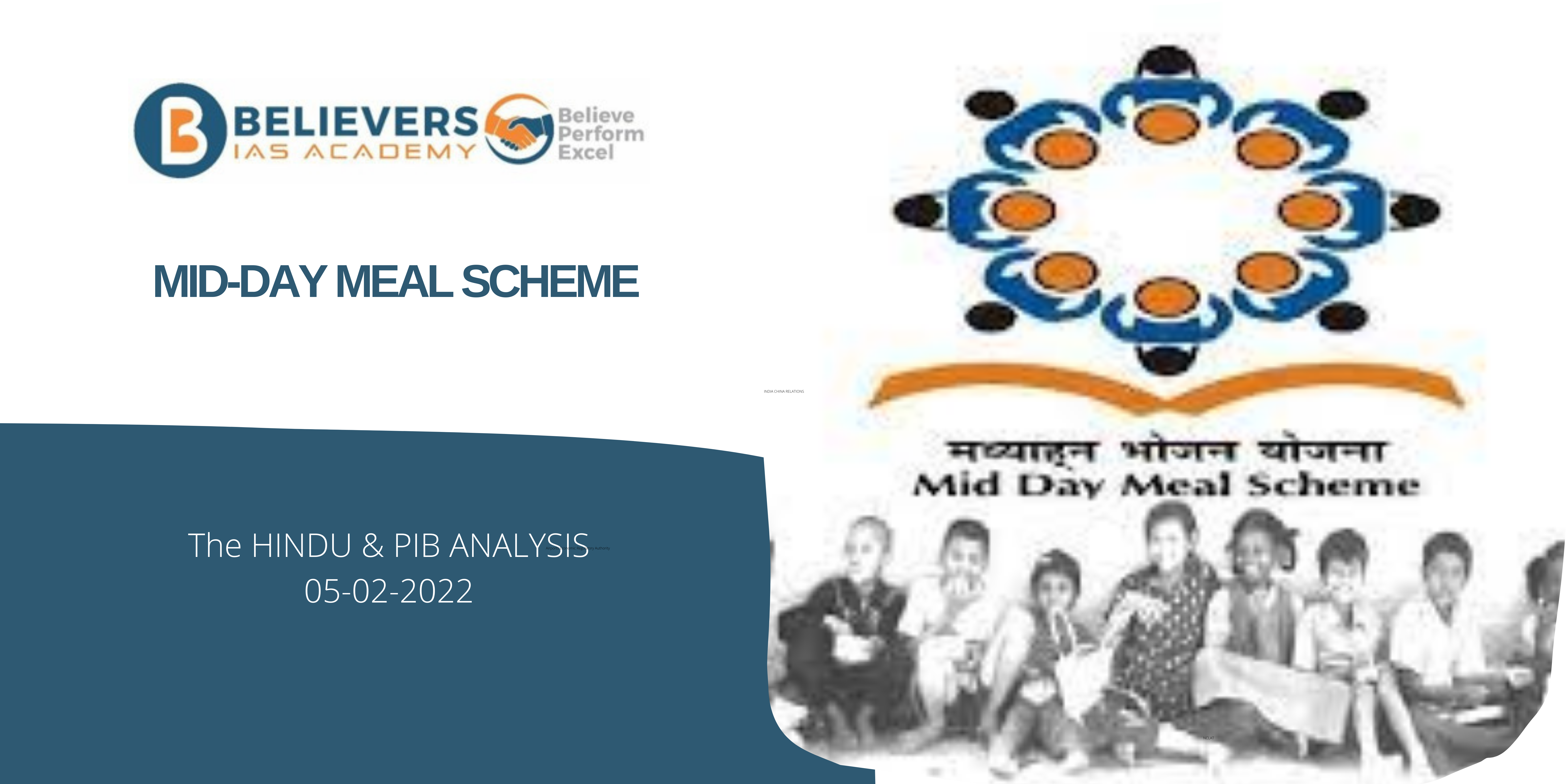Mid-Day meal scheme
Context:
- The Government of India is to include millets in the mid day meal scheme. This is being done to enhance the nutrition in children. The announcement was made by the Ministry of Education.
- It is to be implemented by PM POSHAN scheme.
About the Mid-Day meal scheme:
- The scheme guarantees one meal to all children in government and aided schools and madarsas supported under Samagra Shiksha.
- Students up to Class VIII are guaranteed one nutritional cooked meal at least 200 days in a year.
- The Scheme comes under the Ministry of Education.
- It was launched in the year 1995 as the National Programme of Nutritional Support to Primary Education (NP – NSPE), a centrally sponsored scheme. In 2004, the scheme was relaunched as the Mid Day Meal Scheme.
- The Scheme is also covered by the National Food Security Act, 2013.
- The scheme offers three types of food.
- They are rice, wheat and coarse grains. The food grains are allocated by the state governments and the union territories.
- The food grains allocations are approved by the Department of Food and Public Distribution.
- The Department of School Education distributes the food grains.
- The cost of the supplied food grains is borne by the central government.
About including Millets:
- The central government has asked the state governments and the union territories to add millets in their mid day meal scheme. This includes bajra, ragi, jowar. These are rich in minerals, vitamins, proteins and antioxidants. They improve the nutritional outcome of the children. The government is taking the step to reduce the levels of malnutrition in the country.
- The millets are to be introduced once a week. Also, cooking competitions are to be conducted among the cook – cum – helpers. This is done to popularise millet recipes.
- Small videos will be created. These videos will explain the importance of millets.
- The NITI Aayog had suggested that the practices of Odisha, Karnataka and Telangana are the best in the country. Their practices are to be shared with the other states.
Source: THE HINDU.




